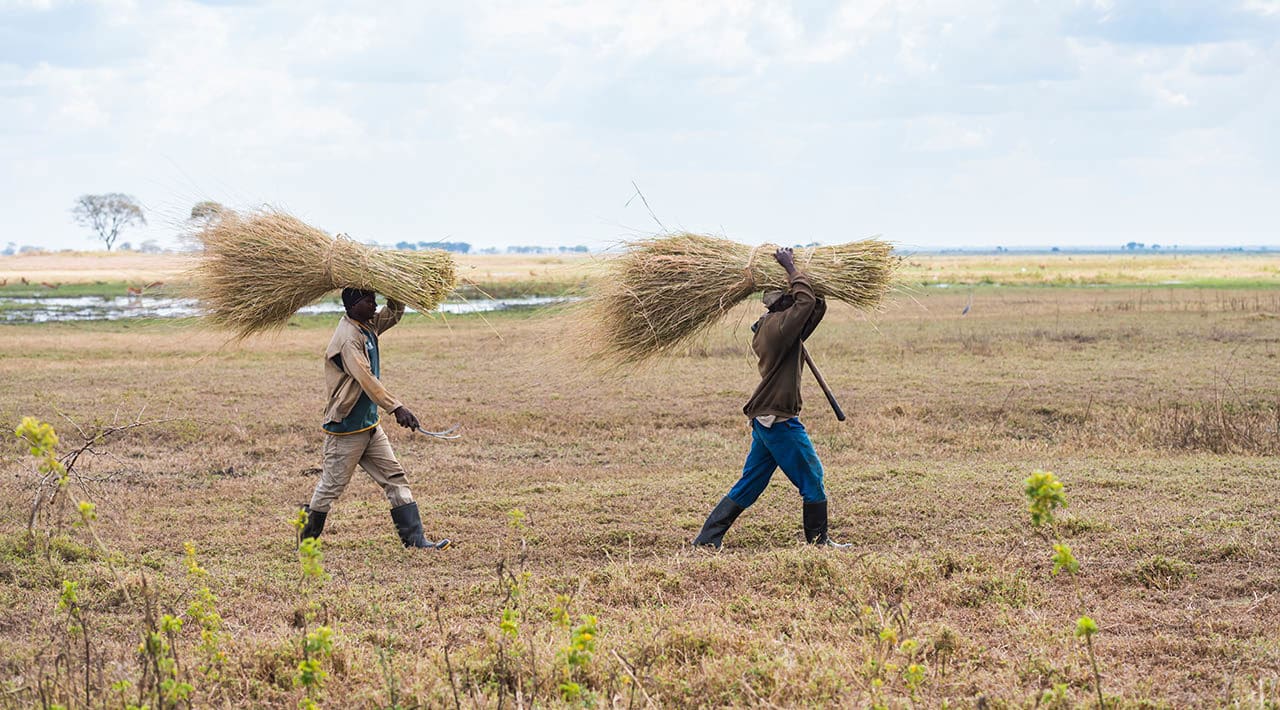
Opening Camp on The Busanga Plains
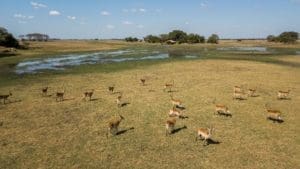 The stunning Busanga Plains form a vast wetland that is inaccessible to all vehicles for 8 months of the year, so when the season opens in July there is a window of only a few days available to build the camp before the guests arrive. Anyone with a camp in such a remote and inaccessible place will have faced the seemingly endless trials and tribulations, the chain of back-to-back challenges and frustrations, but they will also appreciate the relief and sheer thrill that is felt when it all comes together and the first guest takes their welcome drink from you, blissfully unaware of the final touches still being made in their luxury tent.
The stunning Busanga Plains form a vast wetland that is inaccessible to all vehicles for 8 months of the year, so when the season opens in July there is a window of only a few days available to build the camp before the guests arrive. Anyone with a camp in such a remote and inaccessible place will have faced the seemingly endless trials and tribulations, the chain of back-to-back challenges and frustrations, but they will also appreciate the relief and sheer thrill that is felt when it all comes together and the first guest takes their welcome drink from you, blissfully unaware of the final touches still being made in their luxury tent.
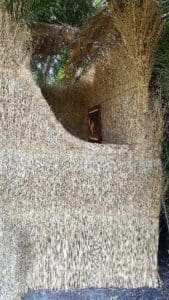 Due to the high water levels of the rainy season, much of the Busanga plains camp must be rebuilt each year; elephant grass is woven to form privacy screening around the various tents and camp areas. Papyrus grass is harvested, shaped and fixed to form walls around the boma and the furniture all re-upholstered with matching cushions you can sink into for long lazy afternoons on the decking. Mosquito nets, replacement canvas and uniform adjustments must all be made on site with a mechanical sewing machine often with little protection from the sun and high winds.
Due to the high water levels of the rainy season, much of the Busanga plains camp must be rebuilt each year; elephant grass is woven to form privacy screening around the various tents and camp areas. Papyrus grass is harvested, shaped and fixed to form walls around the boma and the furniture all re-upholstered with matching cushions you can sink into for long lazy afternoons on the decking. Mosquito nets, replacement canvas and uniform adjustments must all be made on site with a mechanical sewing machine often with little protection from the sun and high winds.
All the wood is sanded by hand and re-varnished, with new rope edging woven and fixed into place at the joints.
A camp with no vehicle access means that all supplies must be walked in on the shoulders of a team of people along a wooden boardwalk – back and forth they go, with building supplies, food, water and kitchen equipment, tables, bed linen and soft furnishings, lamps, decorations and wall hangings. Keeping food cold and fresh on the 8 hour journey from Mukambi Lodge requires careful thought and planning, as does dealing with inevitable events like getting the vehicles stuck in the thick black cotton soil.
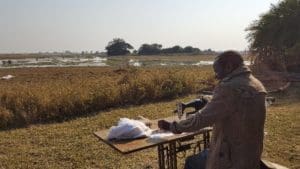 Should there be a problem with the game viewer vehicles, the local camps all pull together to help each other out; one might have a welder, another some spare parts etc. All camps are in the same boat so to speak and so co-operation between them is key to a successful season on the plains.
Should there be a problem with the game viewer vehicles, the local camps all pull together to help each other out; one might have a welder, another some spare parts etc. All camps are in the same boat so to speak and so co-operation between them is key to a successful season on the plains.
Space constraints only allow for one individual of each role within the staff rota, so the team all have to be multi-skilled in order to cover for each other during periods of off time; a manager must know their way around the kitchen and a housekeeper must double as a maintenance person, guides also become mechanics, builders and electricians as needed.
Cooking is mainly on gas and fire, so this doesn’t typically present a problem – but the chef has to be a good improviser and shift menus around depending on availability of food stuffs, allergies, guest preferences and intolerances.
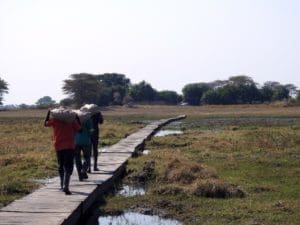 A well provides water which is fed through 6 different filters to purify and ensure it is safe to drink – however this typically gives it a chlorinated taste which many guests are not used to, so bottled water also has to be carried in on a regular basis.
A well provides water which is fed through 6 different filters to purify and ensure it is safe to drink – however this typically gives it a chlorinated taste which many guests are not used to, so bottled water also has to be carried in on a regular basis.
The entire Busanga plains camp is run on solar energy, so on cloudy days, there is often a risk that the energy will not last the daylight hours. Without power, there are no pumps to move water, no wifi which means no comms with the outside world, and no working radio system. With no phone signal coverage anywhere on the plains, it’s a brave team that immerses themselves in this remote life for 4 months of every year. But for Annekim, our Busanga Plains Camp Manager, it is this “back-to-basics” lifestyle that makes her job all the more enjoyable; a seasonal reminder that we can survive, and even thrive, on far less than we think. A place to reconnect with the natural world and take time to see the magnificent in the mundane.
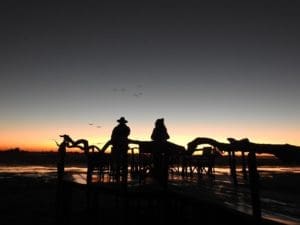 Waking up in paradise every morning and getting to share it with interesting guests from all over the world is what drives Annekim and her team to deliver on time, every time – however challenging it may be!
Waking up in paradise every morning and getting to share it with interesting guests from all over the world is what drives Annekim and her team to deliver on time, every time – however challenging it may be!
